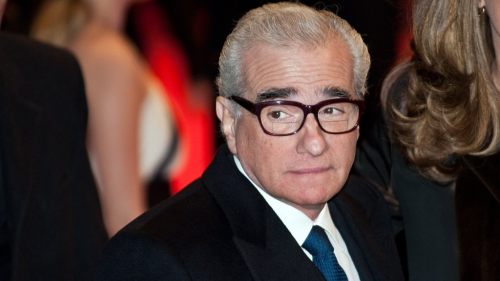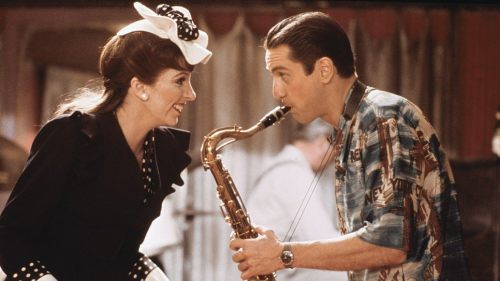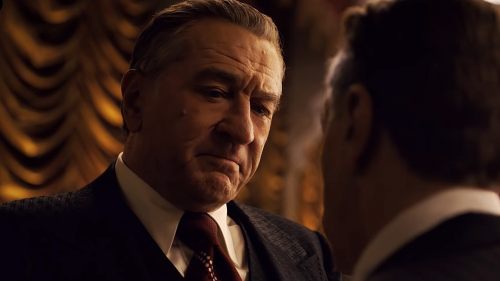SHUTTER ISLAND At 10: Scorsese Goes Slumming
If there’s anyone out there who still believes that Martin Scorsese will or should ever direct something like a Marvel movie, consider this: Shutter Island is what it looks like when Scorsese is slumming. Mind you, that’s not to suggest that one of America’s greatest living filmmakers is phoning in his effort - I don’t believe, fail or succeed, that’s something he’s capable of. But the 2010 thriller is the closest thing that he’s come in decades to acquiescing to genre tropes instead of his own creative idiosyncrasies. And that may be why upon its 10th anniversary, Shutter Island remains at once a curio, a perhaps not-quite-100-percent successful exercise in style and storytelling that’s alien to his best efforts, while still managing to be an invigorating, essential outlier in Scorsese’s body of work.
An adaptation of Dennis Lehane’s novel of the same name by screenwriter Laeta Kalogridis (Alita: Battle Angel), Shutter Island feels like a clearing house for the cinematic influences Scorsese has largely been unable to exorcise elsewhere in his polished, sumptuous filmmaking. The filmmaker acknowledged the influence of Hitchock and Val Lewton, but there are elements of Hammer horror and tonally, even Kubrick among the various predecessors whose work fed into his technique bringing this heartbreaking, mind-bending thriller to life. It indulges theatricality in both the storytelling and filmmaking technique, giving the cinephile filmmaker a playground to explore as freely as he ever had before.
It’s this excess that actually jeopardizes the emotional impact of the story itself: U.S. Marshal Teddy Daniels (Leonardo DiCaprio) visits Shutter Island with his partner Chuck Aule (Mark Ruffalo) in search of escaped mental patient Rachel Solando, only to embark on a journey into his own deepest doubts and darkest fears. Scorsese so expertly wields the twists and turns in this labyrinthine world of too-good-to-be-true fictions and realities desperate to be escaped that he almost undercuts the “prestige,” in magician terms, of the emotional climax of his protagonist’s experience, with overwrought sleight of hand. At the same time, there’s something so purely thrilling watching the director working in a style that feels so different from his typical work that it sometimes doesn’t matter if it all fits together other than as a menacing, mesmerizing thundercloud of mystery.
I would love to see Shutter Island as part of a double feature with David Fincher’s The Game, another film that shows its hand at regular intervals as it attempts to teach its main character epiphanies he wouldn’t learn without a profound, melodramatic, even traumatic disruption to his entire worldview. The sequencing of the films would depend on how upbeat or optimistic you want your audience’s worldview to be afterward, but Scorsese’s is by far the unhappier of the two, a heartbreaking story of a man wrecked by both his own misdeeds and his inattention to his wife’s needs, which led to her own misdeeds, and finally, either his inability to move past that guilt, or even more tragically (depending on your interpretation of a key line at the very end), a choice to end a future of uncertainty with one of devastating finality.
It’s strange to imagine Fincher’s infernal machine as the more “believable” of the two conceits, given the logistics involved in mounting everything Michael Douglas’ character endures in The Game, but Scorsese leans into the novelistic and even philosophical elements of Daniels’ plight in a way that certainly lends to a wonderful cinematic experience, if not one that could be convincingly staged by even the most gifted and knowledgeable hospital administrator. Minor characters and incidental figures offer profound, poetic insights not just into the nature of Daniels himself, but the nature of man and his aptitude for violence, which work wonderfully for the film - or indeed, for a film - but they stretch credulity once we realize that the whole thing has been engineered as a gambit to force a psychological catharsis.
Nevertheless, Scorsese’s double-deep bench of character actors, or maybe great actors in character roles, including Max von Sydow, Emily Mortimer, Patricia Clarkson, Jackie Earle Haley, Ted Levine, John Carroll Lynch and Elias Koteas, keeps audiences on their toes as they try to divine reality from fiction, and find the thread that connects all of Daniels’ conspiracies tethered together. What’s remarkable is how the film’s potential shortcomings make it more interesting even if it exposes the stitching trying desperately to keep it all together. And then there’s that giallo of a finale, that revelation that explains how and why everything has happened, as audiences shed their speculations and theories to hope against hope that a poor injured man can reckon with his own experiences and culpability to achieve some moment or degree of solace.
Certainly there are few movies among the old standards Scorsese borrowed from that deliver on the emotional weight that Daniels receives in the final scenes of Shutter Island. To me, that’s where Scorsese’s abundant genius is most evident; even if his thrashing through the hallways of a creepy, mysterious mental asylum offers a lot of style, wielding genre boilerplate in perfect chapter and verse like a mimic, or perhaps an academic, he understands that purpose and meaning - his own, more even than the tropes he manipulates - is what binds it all together. Why has this character gone on this journey? What has he learned? What have we learned? And how have we changed from this experience? Martin Scorsese is a filmmaker who understands that he needs to provide answers, but remains more interested in asking those questions. That’s precisely what’s kept us interested in his work, both in Shutter Island and throughout his career.



